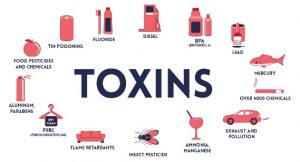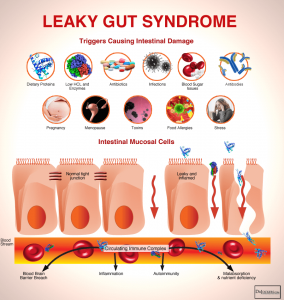Autism is a relatively newly recognized disorder that is quickly affecting more and more children as time progresses, affecting 1 in 68 today compared to just 1 in 150 in 2000. While much progress has been made in recent decades with the understanding of the mechanisms of autism, its cause is still widely misunderstood. There is no solid proof of the exact cause of autism, but it seems that individuals with susceptible genes are triggered by environmental toxins and deficiencies, leading to defects in neural signaling. Because environmental factors can trigger gene expression for autism, the preventions and treatments of autism are intriguing areas of study.
What is Autism?
Autism is a spectrum disorder, which means it has varying degrees of severity. All classifications of the autism spectrum involve difficulty socializing and communicating with others, and most cases involve repetitive behavior.
What Goes Wrong in the Brain?
- Increased number of neurons leading to oversized and overactive temporal and frontal lobes
- Ineffective elimination of unnecessary synapses
- Imbalance of excitatory and inhibitory neurotransmitters
- Heightened levels of immune cells in the brain
- Defective blood-brain barrier
How Do Toxicities Lead to Autism?
There are over 77,000 man-made toxins in our environment that were not meant to be taken in by humans. Toxins, whether they are pesticides, heavy metals, or plastics, must be removed from our bodies through innate mechanisms, or the biochemical processes in our bodies will go haywire. When an individual has a toxic overload, their body is depleting all of its amino acids in attempt to detoxify. Unfortunately, these depleted amino acids are necessary for normal brain function, and this inability to efficiently detoxify the body can lead to autism.

Most people understand that pesticides and fossil fuels are harmful to our health, but one overlooked toxicity is heavy metals. A lot of metals are essential to our body’s function, such as iron, but when any of them are too concentrated, problems arise. Specifically, high concentrations of copper in the body are very common in autistic individuals. Copper is an antagonist to zinc, which means they work together to make sure concentrations of each stay in check. When copper levels are too high, zinc is depleted. Low zinc levels have been correlated to autism because it leads to a dysfunctional immune system.
Does Gut Dysfunction Affect Immunity?
The answer to this question is yes. Scientists are now saying that at least 80% of our immune systems reside in our gut, and at least 90% of autoimmune diseases correlate with gut dysfunction. So fixing our guts will fix all of our health problems? Well, actually in most cases, yes. A compromised immune system is pointed to as one of the main factors in developing autism, and we just learned that 80% of our immunity lies within our gut. But first, lets learn how our guts became compromised in the first place.

“Leaky Gut” has been coined as the term describing increased intestinal permeability. It means that the large intestine is letting things through its walls that shouldn’t be leaking through. Bacterial cells can leak through the weak gut lining into the bloodstream, eventually into the brain where they can wreak havoc on neurons. Leaky gut can be caused by a variety of factors, including an imbalanced microbiome, poor diet, stress, and toxicities. Remarkably, repairing “leaky gut” in autistic individuals has been shown to dramatically decrease symptoms.
Can Autism Be Prevented or Cured?
It has been proven that a compromised immune system is correlated with the development of autism. Therefore, keeping an eye on a child’s immune function as it develops could be key in preventing autism. Three factors that have a negative effect on immune function are inflammation, nutrient deficiencies, and toxic overload. They can be addressed in a variety of ways:
- One of the most prominent causes of inflammation is leaky gut
- To fix leaky gut, removing food allergens is a great place to start
- Additionally, restore healthy gut bacteria with probiotics, and stay away from antibiotics
- Nutrient deficiencies can be tested for and supplemented until levels are healthy again
- Once inflammation and deficiencies are taken care of, the body has a much easier time detoxifying and reducing free radicals
Image 1: https://www.google.com/search?safe=off&biw=1280&bih=613&tbm=isch&sa=1&ei=0BS0W_zGBKa-jwSWhqnIBw&q=leaky+gut&oq=leaky+gut&gs_l=img.3..0i67j0l2j0i67j0l6.519207.520291..520406…0.0..0.199.908.6j3……1….1..gws-wiz-img.ujjU5nAd6Ms#imgrc=mOhjZuZTWzpH5M:
Image 2: https://www.google.com/search?q=environmental+toxins&safe=off&source=lnms&tbm=isch&sa=X&ved=0ahUKEwjqn92EjOndAhWG64MKHSVgBm4Q_AUIDygC&biw=1280&bih=613#imgrc=QNVaZiJeDV80sM: